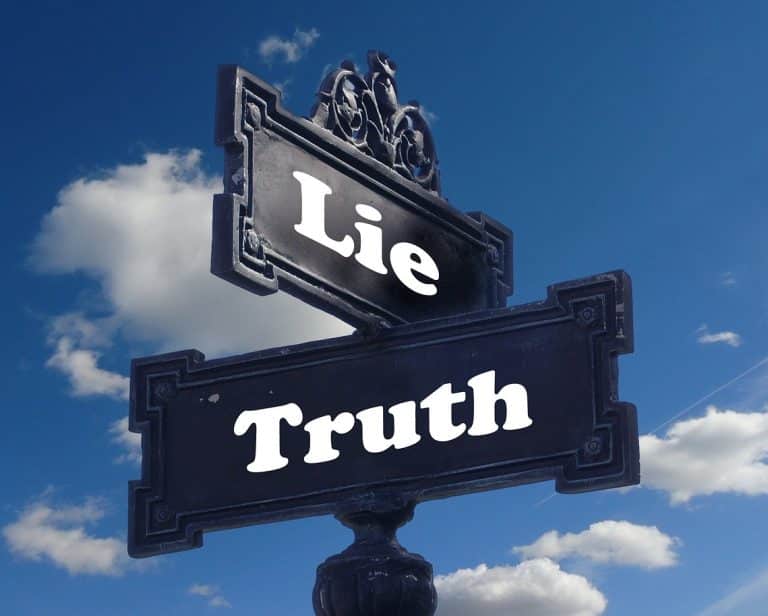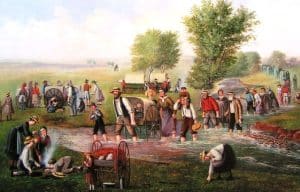Image by Gerd Altmann from Pixabay
Our guest author is an anonymous nuanced, active, married Latter-day Saint woman writing from her perspective as a parent and teacher of youth. The Exponent blog welcomes guest submissions. You can learn more about our submission guidelines and how to submit on our online guest post submission form.
I’ve generally had a very good experience with callings in the Church of Jesus Christ of Latter-day Saints. I often seem to get the calling I need most at that stage in my life, a blessing for which I count myself very lucky.
These days, I have the chance to teach Youth Sunday School, which is very new and unfamiliar to me. I appreciate what I’ve learned trying to approach the scriptures from a preteen’s or teen’s perspective (especially as someone who never did because I didn’t have a religious upbringing). I also like hearing and learning from the youth themselves and how their insights not only reflect what they’re hearing at home and school and among friends but also their own assertions and beliefs and values, which are in such a period of rapid formation and flux.
There are times when I find this calling challenging, like when there aren’t enough teachers in town so we combine classes and I spend most of the hour trying to convince too many energetic kids crammed in a small room to put away their phones and stop shouting over me and each other. Or when my carefully prepared lesson doesn’t land quite as well as I’d hoped. But I never asked for an easy calling, and even these challenges have helped make me more patient, more willing to ask for what I need, more humble, and more creative – things for which I’m grateful.
Nevertheless, something happened in my Sunday School class that really took me aback and I haven’t been able to stop thinking about it since. I referenced a New Testament scripture related to the Come, Follow Me lesson where Jesus blessed the wine. Or drank wine. Or did something with wine. I honestly can’t remember which it was, and I wish I had written it down.
Regardless, I know it involved Jesus and wine because one of my students, a young woman who is one of the most engaged on any typical Sunday, raised her hand. Thrilled for any youth participation when I can get it, I called on her. But what she shared hit me and the class like a record scratch moment.
She said, “Jesus didn’t actually drink wine.”
I stumbled a bit, and I’m pretty sure I couldn’t stop my eyes from widening. “What do you mean?” I asked, hoping there was some miscommunication at play.
She clarified, “My parents told me Jesus never drank wine. It was just grape juice. Not real wine with alcohol!” She said it with such earnestness and confidence I honestly didn’t know what to do.
Some of the other kids in the class snickered, but I don’t think she heard them and I didn’t want to make her feel bad by drawing attention to it. I also didn’t want to pull her aside one-on-one after class as if she was in trouble and tell her that her parents lied to her – but that’s exactly what they did.
I felt so naive. I hadn’t even imagined there were members who taught their children historical falsehoods about Jesus in this way. I assume it’s because they didn’t want their kids to get curious about alcohol by seeing it was something the person they’re supposed to admire and emulate most consumed.
I wouldn’t know, because I haven’t talked to the parents about it. What I did instead was gently pivot to how the Word of Wisdom and our stricter interpretation of it came much later in the Restored Church and that Jesus drank wine like his contemporaries. I shared that even Joseph Smith and other early Church leaders drank alcohol, and it’s okay to know that and still make choices for yourself.
I’m still trying to work up the courage to talk to the family, but honestly I don’t know almost anyone in my ward despite attending every ward-related activity I can. I haven’t had any ministering brothers or sisters, been assigned anyone to minister to, and have had only a few sisters reach out in friendship (and they’re all mostly traveling for summer break with their kids). Most of my invitations to get to know people better have been declined.
I gave a talk that included my support of and love for LGBTQIA+ people, and many people shared that they appreciated it but others also said it wasn’t appropriate and that our leadership didn’t like it. Thankfully, I’ve been able to keep my calling and my Temple recommend for now (the latter of which was almost taken away in a previous ward due to my relatively progressive views).
It’s difficult for me to maintain my current level of participation and friction as I push back on things. I haven’t been willing to add what I expect to be an unpleasant confrontation with youth parents to my list. So I’m writing this post as a plea to parents: it’s not too late to start teaching your children the truth. If you think their faith might crumble in the face of hard truths, imagine how much worse it will be when they find out what you taught them was really just a convenient, neatly packaged lie.
I’m a mom, too, and I know the truth can be uncomfortable – as are apologies and repentance. But our kids are counting on us to lead them to truth, not to trick them into Church membership with flattery. We can’t follow Christ’s example with Nehor’s tactics. So tell them Jesus drank wine. Tell them about tough Church history. Tell them about your own mistakes. These conversations will do more for your child (and their poor Sunday School teacher) than anything fairytale falsehoods could.










6 Responses
There is courage and candidness in this post that I find very admirable. I have been a nuanced member for years, but I struggle with boldness, with finding my voice. It comes down to lifelong conditioning to not offend, I guess. This call to speak up when something it wrong is refreshing, and it’s a message I needed to hear. Thank you
Drinking fermented beverages was a food safety method for much of history. It’s really not a moral issue. Good job handling it!
I grew up Mormon in Utah and was taught many times that “wine” in the Bible really meant “grape juice”. It’s kind of hilarious. The story is just continuing through the generations!
I’m going to start making up my own stuff, too. Like when Jesus says “love” your enemies, maybe the word really meant “punch” your enemies back then.
I remember hearing it come up in a lesson or two as a youth in Utah also. It was usually in the context the OP experienced – a kid raises their hand and says that’s how it was. I remember never believing them anyway because I figured if it were grape juice, they would have used the word juice.
OK, and now I just went down a rabbit hole of googling other stuff about this wine vs. grape juice stuff. There’s a lot from a lot of different Christians trying to figure out how much alcohol Jesus was consuming – with some debating whether it was much of any. This guy (https://cfc.sebts.edu/faith-and-culture/was-new-testament-wine-alcoholic/) says it was alcohol, yet not that much alcohol. Interestingly, another thing I read said it had to be alcohol because grape juice had not yet been invented and wouldn’t be till the 1800s…but now that I type that I don’t understand how that makes any sense at all. No one before had ever thought to drink the juice before it was fermented? These are just random Christian blogs I’ve been reading, so who knows. I could actually research reputable sources, of course, but my googling started because I was just curious how widespread this whole myth of grapejuice is. Turns out it’s pretty widespread!
The problem with it being “grape juice” is that back then, they had only grape harvesting season (1 month or so) when fresh grape juice was available. They could squeeze out the juice and drink it right away, but it ferments in 24 hours if unrefrigerated. There was a problem back then that drinking water was often unsafe, if not boiled for tea or coffee, and so people had to drink things that today we know as against the Word of Wisdom. The only way to have anything from grapes year round was to ferment the juice into wine or dehydrate the grapes into raisins. They couldn’t keep it frozen and canning had not been invented, because they didn’t know it was invisible yeast plants that cause fermenting or spoilage.
So, only when the grapes were fresh off the vine did they have grape juice, and yes, of course they drank it that way for a short while, then they drank it as “new wine” which is just starting to ferment. When we lived in Germany wine country a guy came around selling “new wine” out of a big vat on his truck. Tasted like grape juice left out for a couple of days, all bubbly and yeasty.
While we lived in Germany, we had to explain to small our children why everyone around them drank wine and what all the fields and fields of grape plants were for, and that yes, Jesus drank wine, but even back then they knew people could drink too much wine and that was bad. Even in the Bible “wine bibbers” were criticized. So, now that we CAN keep grape juice fresh and have clean water, we know to be careful of wine, but a little won’t hurt you, just respect that it can be addictive.
What a fascinating, real-time example of encountering a seemingly well-meaning lie that these parents told their children. It sounds like you handled it well. It also mirrors larger institutional problems with some leaders deciding that church members can’t handle certain historical truths and deciding to actively cover them up. People can handle more truth than they’re given credit for, but I don’t think many people like learning they have been lied to.
Also, I’m sorry for how hard it has been for you to get to know people in your ward. That sounds lonely.